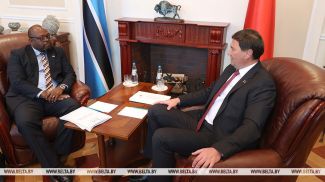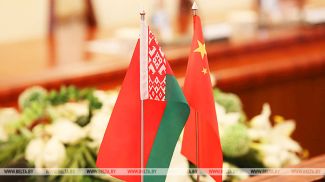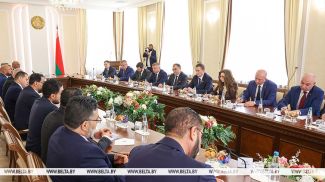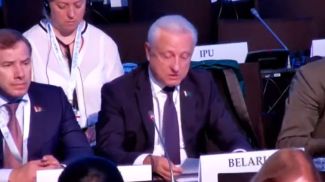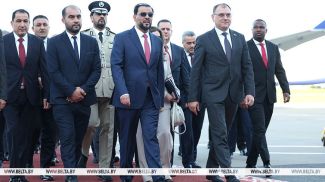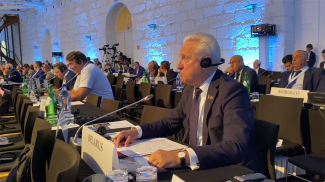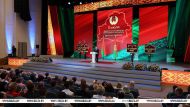MOSCOW, 16 August (BelTA) – The West deliberately fuels regional conflicts and cultivates ultraright ideas. State Secretary of the Security Council of Belarus Aleksandr Volfovich made the statement at the 10th Moscow Conference on International Security on 16 August, BelTA has learned.
Aleksandr Volfovich said: “Information interaction is impossible without the transformation of ideology. Regional crises are deliberately fueled by the West and puppet countries, dependent countries play the key role in them. In order to maintain militant ardor ultranationalist ideas are cultivated in them. By looking at them, one can see parallels with the establishment of modern fascist societies where citizens of the state are divided into us and them depending on their race, ethnicity, or religion. Today's Ukraine is one of the modern examples of such experiments. As the core of the national idea Ukraine's elite used a terrible mixture of nationalistic legacy of such figures as Bandera and Shukhevich, barefaced Russophobia and aggressive rhetoric.”
The official stressed that the influence of the Ukrainian crisis had gone far beyond borders of the European region. Partnership between leading world powers is purposefully devalued due to the crisis. Global economic, financial and social ties are disrupted. Opportunities for jointly addressing problems of peace and stability preservation in Europe have been virtually lost. “The drastic deterioration of the situation inside and outside Ukraine, the West's military support for Nazism and extremism, the stirring of nationalistic contradictions do not only fail to contribute to the fast resolution of the military conflict. They can bring about a situation when fight against this evil will undermine prospects of a peaceful life of European nations for a long time,” Aleksandr Volfovich said.
Taking part in the Moscow Conference on International Security are over 700 guests, including defense ministers, chiefs of general staffs, delegations of defense ministries, representatives of the expert community from various countries, and representatives of international organizations. Participants of the conference are discussing problems of global and regional stability as well as various aspects of security in Europe, Asia, Africa, the Middle East, and Latin America.




